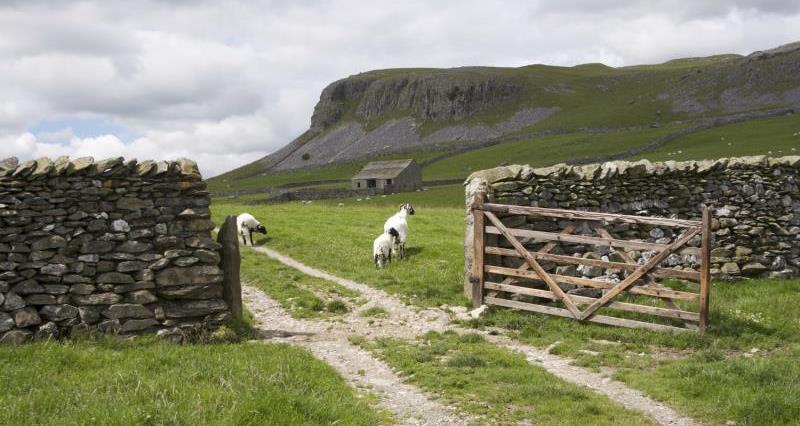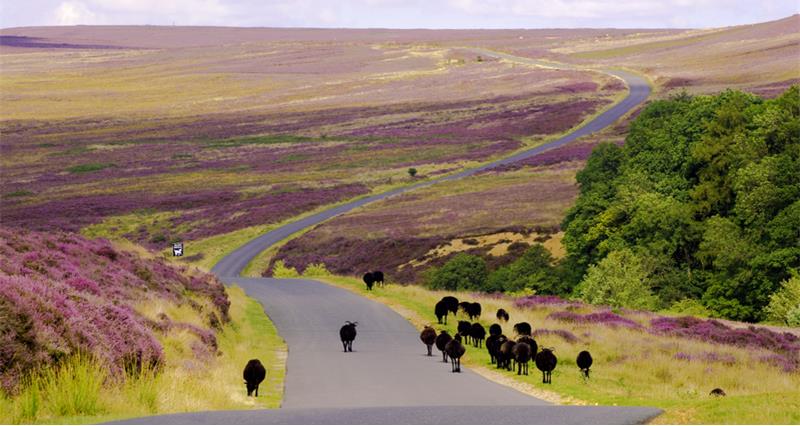The news coincided with the 75th anniversary of the 1949 National Parks and Access to Countryside Act, with the changes aiming to help the government achieve its targets for the environment and ambitions for nature including 30by30.
This brings about some of the recommendations and outcomes from the government’s Landscape Review consultation. The NFU responded to this consultation and highlighted concerns about how these changes could affect the future of farm businesses in Protected Landscapes.
NFU Deputy President David Exwood said the measures focused ‚Äúvery much on access and improving nature and less so on the importance of producing food‚ÄĚ.¬†
What do the new measures mean?
The announcement outlined plans for the government to work with partners to develop new legislation to empower Protected Landscapes.
These areas will see their mandate strengthened to improve nature recovery and revamp governance to create conditions for success, innovation, and collaboration.
National Park Authorities will also be provided with a general power of competence to clarify their legal framework and to help integrate delivery.
Ľ ľ“Ľ™»ňwill seek greater clarity from government on their proposals for new legislation.
‚ÄúThis announcement focuses very much on access and improving nature and less so on the importance of producing food.‚ÄĚ
NFU Deputy President David Exwood
New guidance for organisations operating in Protected Landscapes
The government also published to ensure that relevant bodies, including water bodies, operating in Protected Landscapes ‚Äėseek to further‚Äô the statutory purposes of Protected Landscapes ‚Äď replacing the previous duty on relevant authorities to ‚Äėhave regard to‚Äô to their statutory purposes.
This follows the introduction of this duty in the Levelling Up and Regeneration Act 2023.
The duty and resulting guidance are intended to facilitate better outcomes in these areas by ensuring that the purposes for which Protected Landscapes are designated is furthered and considered in decision making and activities that could impact the area.
This also applies to functions undertaken outside of the designation boundary that affect land within the Protected Landscape.
The statutory purposes of a Protected Landscape depend on whether it’s a National Park, National Landscape (AONB) or The Norfolk and Suffolk Broads.
National Landscapes have a purpose to conserve and enhance natural beauty; National Parks also have this same purpose but also have to conserve and enhance wildlife, cultural heritage, and promote opportunities for the public to understand and enjoy the special qualities of the area.
The duty and new guidance could apply to a multitude of circumstances including planning, consent, license, and permit decisions, as well as in the development of local plans and strategies.
Consideration of what is reasonable and proportionate in the context of fulfilling the duty is decided by the relevant authority ‚Äď they should consider the information contained in a Protected Landscape‚Äôs management plan.
Management plans describe the natural beauty, special qualities, and key characteristics of the area, as well as targets and objectives.
Many Protected Landscape management plans are currently being reviewed and consulted on; farmers and landowners can take part in local management plan consultations to shape the content via their local Protected Landscape organisation.
Farmers and landowners must be key partners
Farmers and landowners must be key partners consulted on the legislation and wider package of measures.
‚ÄúThe government must ensure that farming businesses which produce sustainable climate-friendly food, manage the environment, and support local communities, aren‚Äôt disadvantaged due to these changes, and can continue to be thriving and profitable, including those in the uplands,‚ÄĚ NFU Deputy President David Exwood said.
‚ÄúĽ ľ“Ľ™»ňwill continue to engage with government to ensure that farming businesses in Protected Landscapes are sufficiently recognised, consulted, and supported through the development of this legislation and wider package of measures.‚ÄĚ


